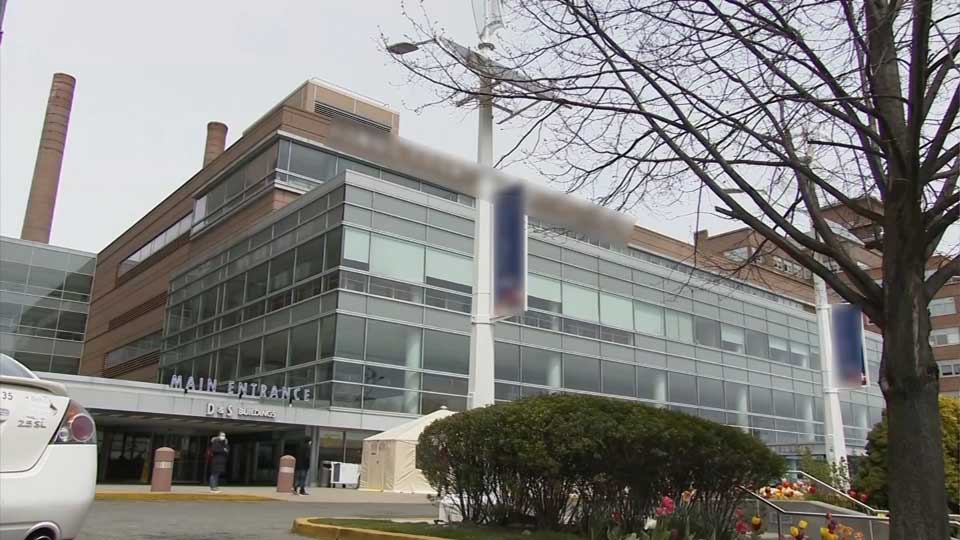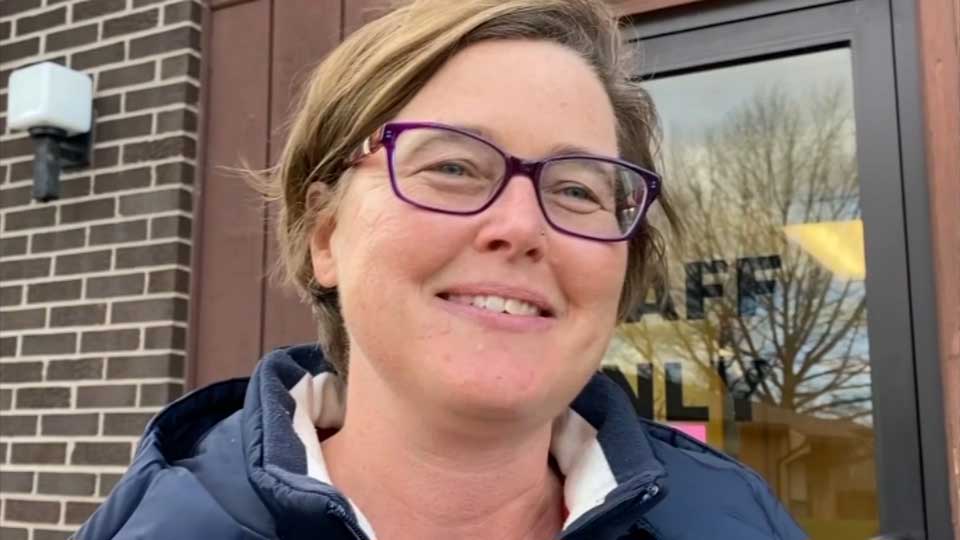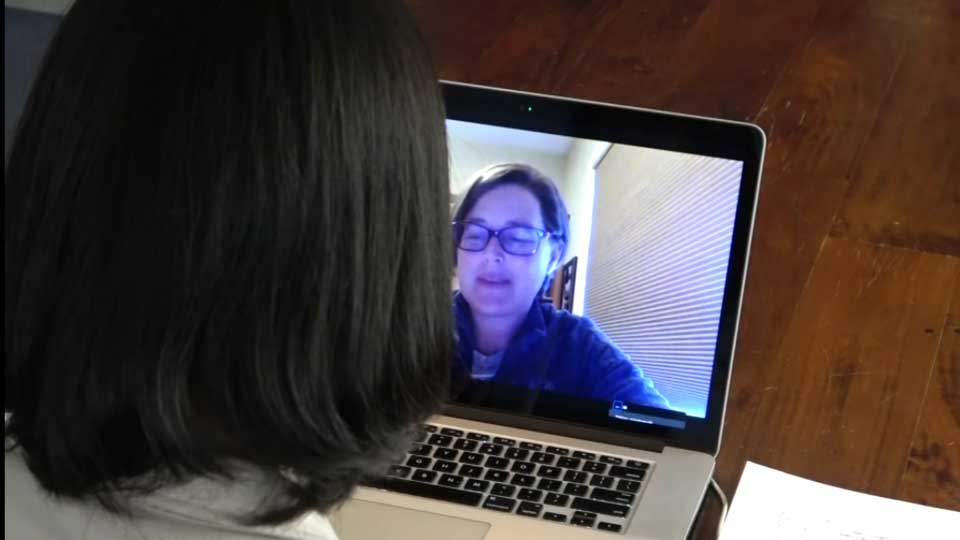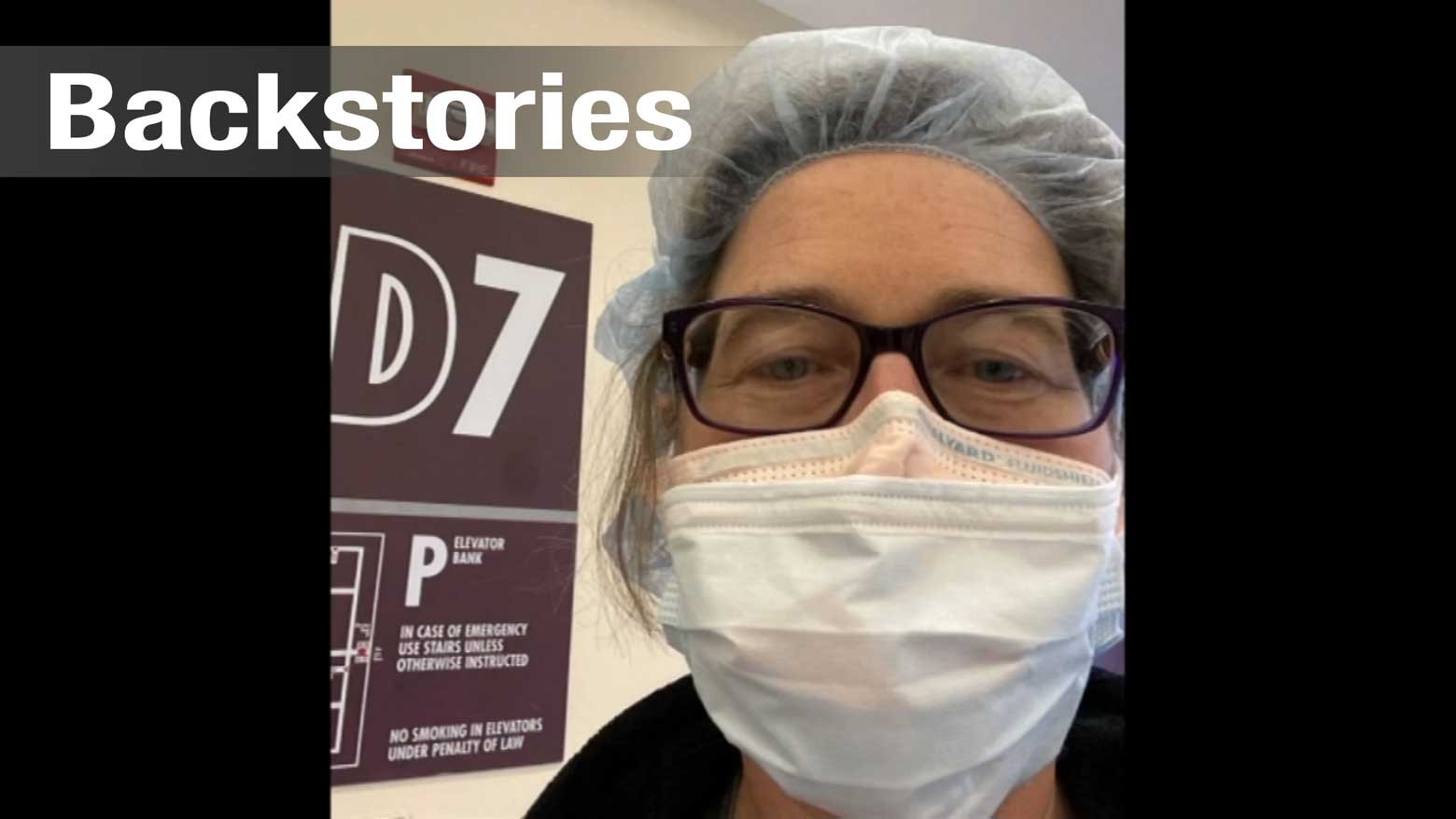"Please, come help us in New York, now!"
In March, New York Governor Andrew Cuomo issued a nationwide plea. His state was seeing more than 1,000 new COVID-19 cases a day, and he sent letters to healthcare professionals asking for help.
Dr. Gretchen Volk, a pediatrician from Rochester in northern New York State, responded immediately.
"I don't really know how to work in an ICU," she said. "I don't know how to run a ventilator. But I am a physician, I am willing to help. And so I sent that in," Volk says. "I'm kind of jumping out of my skin to want to do something where I know they can really use some help."
A few weeks later, Volk boarded a flight to New York City with other volunteer healthcare workers. The state's death toll from the coronavirus had just hit 750. She was bound for Brooklyn, one of the hardest-hit areas of the city.
It wasn't the first time Volk had volunteered her services. For the past seven years, she has traveled to Guatemala on medical missions to help children in poor communities. But she says she has never experienced anything like what she found in that Brooklyn hospital.

Day one: an eerily quiet ward
Volk worked in a team of seven people—doctors, interns, and nurse practitioners—caring for 36 COVID-19 patients. She says her colleagues were exhausted from working non-stop since the beginning of the pandemic but were still in good spirits with a sense of purpose. The ward was eerily quiet, she says, because the patients weren't allowed visitors.
As Volk did the rounds with the team, she looked for ways to be helpful. When she heard other doctors say they had exhausted ways to treat three of the patients in the unit, she volunteered to help break the news to the relatives.
"These poor families. They haven't seen their loved ones. They have no idea how terrible they look," Volk says. From then on, she helped patients communicate with relatives who couldn't be by their side. Having tough end-of-life conversations with the families of dying patients became part of her job, along with administering medicine and monitoring the oxygen levels of patients.
Day two: painful losses
The next morning, Volk encountered the cruel reality of the virus with two unexpected deaths. One was a young man who was a member of the hospital's staff. The other was an elderly woman she befriended.
"(The woman) was in extreme respiratory distress, so scared," recalls Volk. "And I probably spent the next three hours with her right at her bedside holding her hand, rubbing her face, trying to reassure her, but she was just getting worse and worse and worse."
From afar, Volk's husband Jeffery was worried about her safety. "I do worry about her getting sick," he said. "You can't help but think about the worst-case scenario."

Medical workers face mental trauma
It's not just the physical risk of exposure that medical workers must contend with. There is also a considerable psychological impact, and in late April it was blamed for the suicide of a well-respected New York emergency doctor.
According to Susan Michael Strasser, Associate Professor of Columbia University and an expert in nursing and public health, the trauma is comparable to that of a soldier returning from the battlefield. "It really is analogous," she says. "They are witness to death and pain on a level that most people never have to witness. It is traumatizing."
Lessons from COVID-19
Volk says it has taken a while to process everything she saw and went through in her week at the hospital. A few days after returning home, as she quarantined herself to protect her family and colleagues, she wrote an essay about her experiences.
"I will never forget my week in Brooklyn and the lessons COVID-19 taught me. It was a week of death and life and cheering for those who got better, and mourning for those who didn't," she wrote. The essay was picked up by a local newspaper, and she says she heard back from many readers who empathized with her experiences.

New York has had more coronavirus cases than any other US state. Thousands of COVID-19 patients are still being treated in New York City hospitals, and medical workers continue to fight to keep the system from being overwhelmed. State officials say that, so far, the call for medical volunteers has resulted in the deployment of almost 15,000 people, who every day are putting their physical and mental health on the line to save others.

